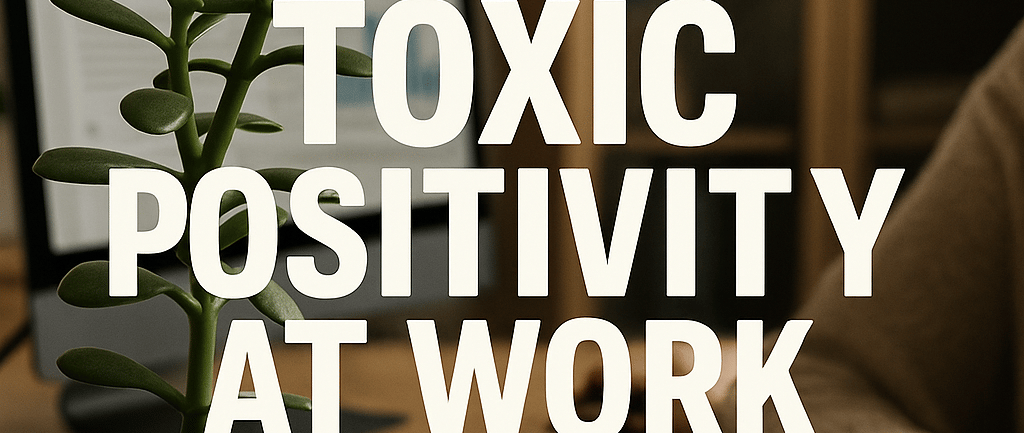Toxic Positivity at Work Is Still Toxic
Why Forced Optimism Hurts More Than It Helps—and What to Say Instead
Kamy Charles
5/27/20251 min read


What Is Toxic Positivity?
Toxic positivity is the overgeneralization of a “positive mindset” that dismisses real emotions, struggles, and concerns.
It’s not encouragement—it’s emotional avoidance.
In the workplace, it sounds like:
“Everything’s fine, just stay focused.”
“Let’s not dwell on the negative.”
“Good vibes only!”
“Don’t bring the team down.”
These comments may sound supportive, but they often shut people down—especially when they’re navigating burnout, grief, anxiety, or overwhelm.
---
Why It’s Harmful
1. It creates emotional isolation.
Employees feel like they’re the only ones struggling—so they stay silent.
2. It minimizes real issues.
Valid concerns get written off as “drama” or “negativity.”
3. It fuels a fake culture.
Trust can’t grow where authenticity isn’t welcome.
4. It reduces psychological safety.
If people fear being labeled “difficult,” they stop being honest—and innovation suffers.
---
What Supportive Leadership Sounds Like Instead
“That sounds really tough—do you want to talk through it?”
“I hear you. Let’s figure out a way forward together.”
“You don’t have to have it all together. We’ve got your back.”
“Thanks for being honest—your voice matters here.”
You don’t need to fix everything. You just need to witness it without judgment.
---
How to Create a Healthier Workplace
1. Ditch blanket statements.
Instead of “stay positive,” ask “how can I support you right now?”
2. Normalize emotional check-ins.
Quick question: “How’s your energy this week?” opens space for honesty.
3. Model vulnerability.
Leaders who acknowledge their own challenges create permission for others to do the same.
4. Reward truth—not just optimism.
Create safety around real conversations—not just polished ones.
---
Final Thought: Positivity Isn’t Bad—But It Isn’t the Whole Story
Encouragement is beautiful. But when it’s used to bypass emotion, it becomes harmful.
Your team doesn’t need a cheerleader. They need a champion.
One who creates space for the full range of the human experience.
Ready to build a culture that supports both success and sincerity?
Let’s talk about how Opus Opportunities can help you lead with emotional intelligence.
